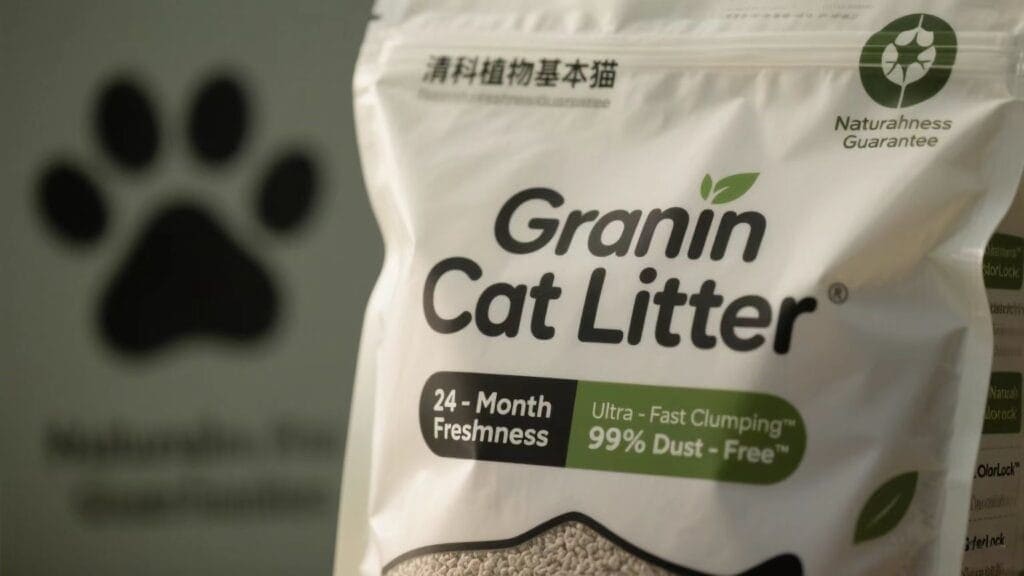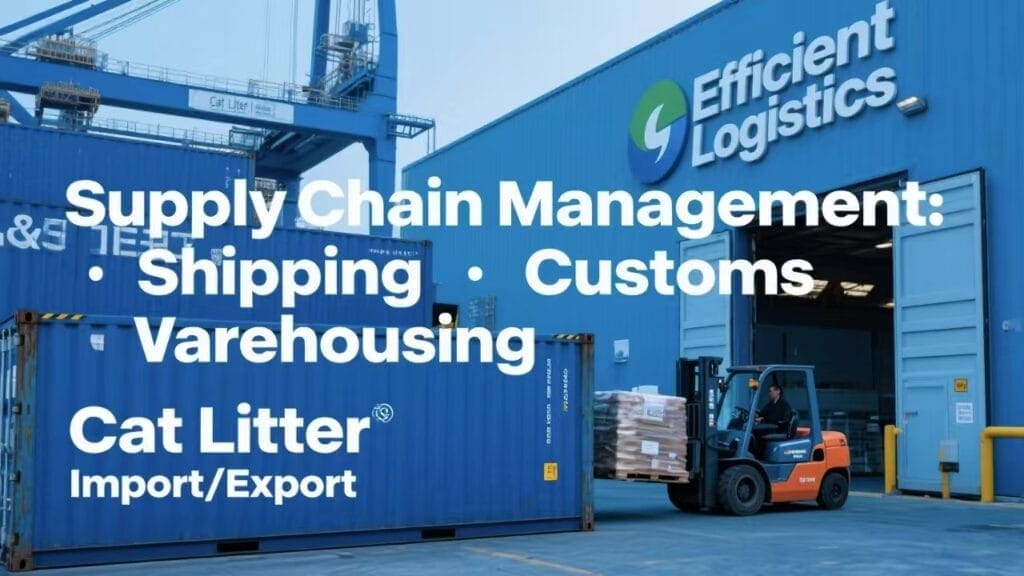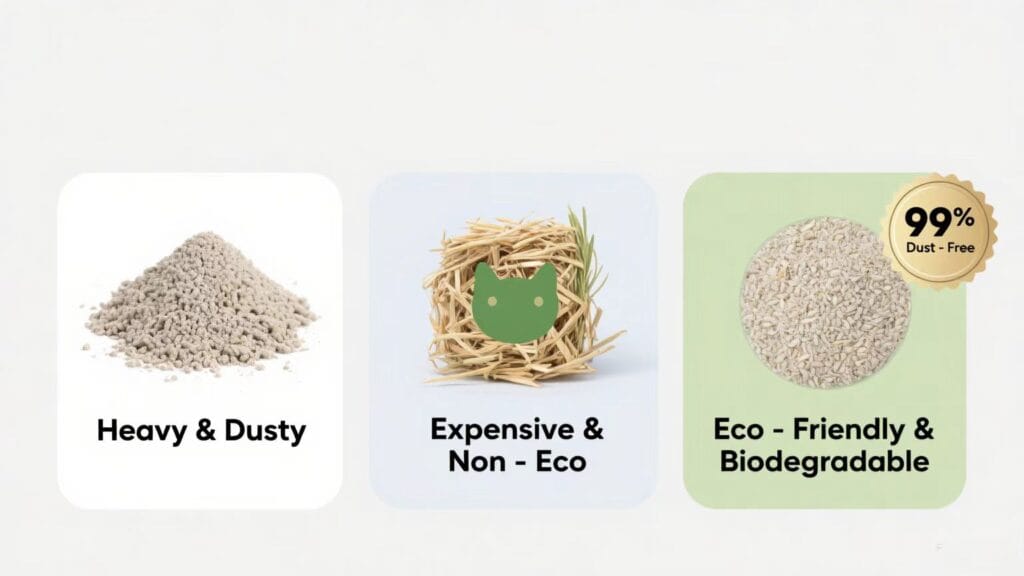If you’re an importer or distributor looking to enter this thriving market, understanding the landscape and partnering with the right supplier is crucial for success. This guide is designed to walk you through the essential steps on How to Start a Profitable Cat Litter Business: A Complete Guide for Importers & Distributors.
Why Enter the Cat Litter Market?
The global pet care market is experiencing robust growth, and cat litter constitutes a significant and stable segment. Cats are among the most popular pets worldwide, and their owners consistently require litter. This creates a predictable, recurring revenue stream for businesses in the supply chain. For importers and distributors, the opportunity lies in connecting manufacturers with local markets, leveraging expertise in logistics, sales, and understanding regional consumer needs.

Understanding the Cat Litter Landscape
Before diving in, it’s vital to grasp the different types of cat litter available and current market trends.
Types of Cat Litter
Historically, clay litter dominated the market. While still popular, its environmental impact and performance limitations are leading consumers to seek alternatives.
- Clay Litter: Absorbent but heavy, dusty, and non-biodegradable.
- Silica Gel Litter: Offers good odor control but is not environmentally friendly and can be expensive.
- Plant-Based Litter: Made from renewable resources like wood, paper, corn, tofu, straw, or rice husks. This category is rapidly growing due to its eco-friendliness, lighter weight, flushability (for some types), and often superior odor control and dust levels.
Key Trends Driving the Market
Consumers are increasingly prioritizing:
- Sustainability: Eco-friendly and biodegradable options are gaining traction.
- Performance: Fast clumping, excellent odor control, and low dust are key purchasing factors.
- Safety: Non-toxic, natural materials are preferred for pet and family health.
- Convenience: Lightweight packaging and easy disposal add value.
These trends strongly favor innovative plant-based solutions.

Essential Steps for Importers & Distributors
Launching a profitable cat litter business requires careful planning and execution.
Market Research & Niche Identification
Your first step is thorough market research. Understand the demand in your target region. What types of litter are currently popular? What are the price points? Are there specific regulatory requirements for pet products? Identify your niche – perhaps focusing on premium plant-based litter, specific packaging sizes, or catering to a particular consumer segment (e.g., environmentally conscious owners).
Finding the Right Supplier
This is arguably the most critical step. Partnering with a reliable manufacturer who can provide high-quality products consistently is paramount. Look for suppliers with:
- Proven Quality: Products that meet international standards (like SGS certification for heavy metals, as our Qingke Plant-Based Cat Litter does) and perform reliably (clumping speed, odor control, dust levels).
- Product Innovation: Suppliers who invest in R&D, offering advanced formulas or unique features, like Qingke’s patented technology (Patent No. 202010311363.2).
- Production Capacity & Reliability: Can they meet your volume requirements consistently?
- OEM/ODM Capabilities: If you plan to build your own brand, the supplier must offer flexible private labeling services.
- Commitment to Trends: A supplier focused on sustainable and high-performance products aligns you with market growth.

Logistics & Supply Chain Management
Efficiently importing and distributing goods involves navigating international shipping, customs clearance, warehousing, and domestic transportation. Developing a robust logistics strategy is essential to manage costs and ensure timely delivery to your customers (retailers, online stores, etc.).

Marketing & Sales Strategies
Define how you will reach your target market. Will you focus on brick-and-mortar stores, e-commerce, or both? Develop a marketing plan that highlights the unique selling points of your chosen product – for example, the eco-friendliness and superior performance of plant-based litter. Education is key, especially if introducing a new product type to the market.
Navigating Regulations & Compliance
Familiarize yourself with all relevant import regulations, pet product safety standards, and environmental guidelines in your target market. Ensuring your product is compliant from day one prevents costly issues down the line.
Choosing a Partner: Why Plant-Based is the Future
Based on my experience, the future of cat litter is firmly rooted in sustainability and advanced performance. This is why at Qingke, we’ve focused on revolutionizing the industry with our Plant-Based Cat Litter (Grain Cat Litter).
Crafted from renewable agricultural byproducts like straw and rice husks, combined with edible starch, our formula is not just eco-friendly but also incredibly effective. Our patented technology allows for ultra-fast clumping – up to 400% faster than some alternatives – which means easier cleanup and less waste.
Furthermore, our Grain Cat Litter offers zero compromise on essential performance features:
- 99% Dust-Free: Safer for cats with respiratory sensitivities and keeps homes cleaner.
- Natural OdorLock™: Our enzymatic formula and deodorizing factor naturally eliminate ammonia odors for 30+ days, keeping the litter box fresh.
- Non-Toxic & Plant-Based: We use no chemicals or heavy metals, certified safe by SGS.
For importers and distributors, partnering on a product like ours means offering a premium, on-trend solution that meets consumer demand for effective, safe, and sustainable options. The vacuum-sealed packaging ensures a 24-month freshness guarantee, a valuable selling point.

OEM/ODM: Building Your Brand
One of the most effective ways for importers and distributors to build a profitable business is through private labeling (OEM/ODM). Instead of just selling an existing brand, you can launch your own brand with a unique identity, tailored packaging, and marketing message.
At Qingke, we specialize in providing flexible OEM/ODM solutions. We empower brands to leverage our high-quality, patented plant-based litter technology under their own name. This allows you to differentiate yourself in the market, build customer loyalty to your brand, and potentially achieve higher margins. We handle the manufacturing, ensuring consistent quality, while you focus on building your brand and distribution network.

Conclusion
Starting a profitable cat litter business as an importer or distributor is a significant opportunity in the growing pet care market. Success hinges on understanding market trends, identifying your niche, and, most importantly, partnering with a reliable and innovative supplier. By focusing on high-performance, sustainable solutions like advanced plant-based cat litter, you position your business for long-term growth and profitability.
If you’re ready to explore How to Start a Profitable Cat Litter Business: A Complete Guide for Importers & Distributors and want to learn more about offering premium, eco-friendly cat litter under your own brand, I invite you to connect with us at Qingke. Let’s discuss how our expertise and our Grain Cat Litter can become the foundation of your successful venture.